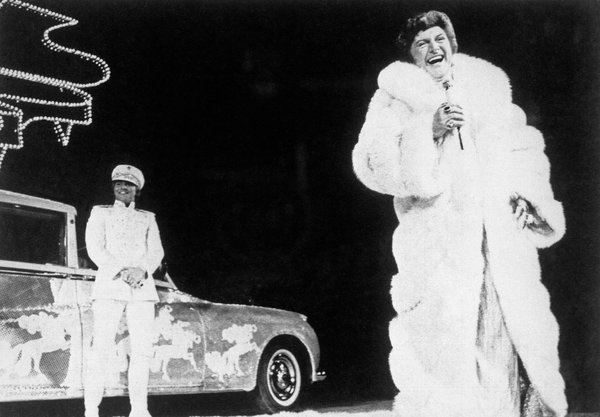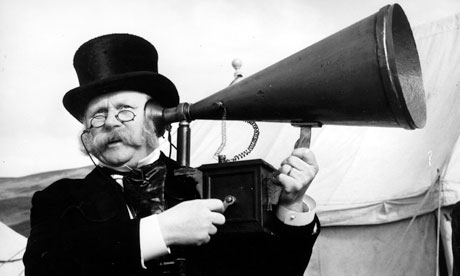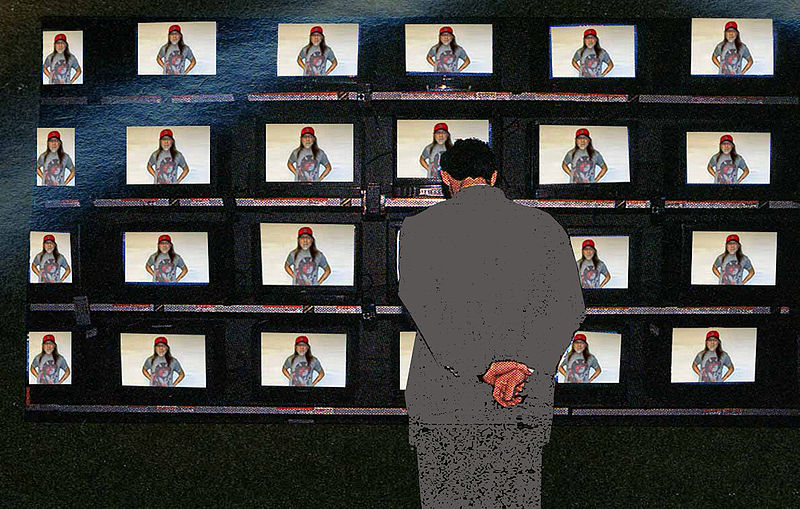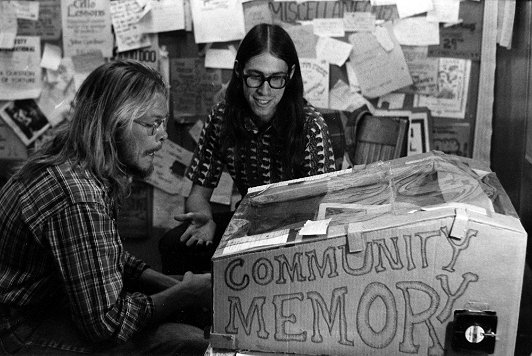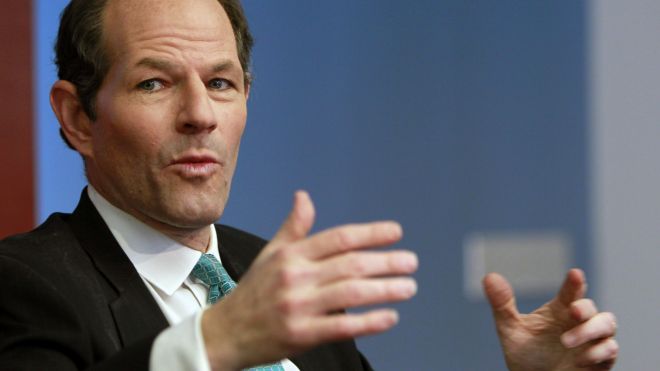Did you have encounters (sexual and otherwise) with Liberace, Loretta Lynn, Ronald Reagan, Michael Jackson and Charles Manson? Of course not. But Scott Thorson, the source of Behind the Candelabra, says he has. He stopped by Howard Stern’s show recently to overshare about these people and so much more. Language absolutely NSFW, unless you work in an S&M dungeon.
You are currently browsing the yearly archive for 2013.
Tags: Charles Manson, Howard Stern, Liberace, Loretta Lynn, Michael Jackson, Ronald Reagan, Scott Thorson
I’ve always wondered whether the music and sound effects which accompany the action in video games can control (to some extent) the quality of the player’s performance. Or if they can even encourage return playing. Do game manufacturers hire social scientists and neuroscientists to research such things? From Meeri Kim’s Washington Post article about slot machine sounds:
“Whether you’re in Las Vegas or the small-town casino down the street, slot machines sound more or less the same: jangly music, the whir of spinning reels accompanied by loud beeps and chimes.
A recent shows that some of those noises can easily fool our brains into thinking that we have won — even when we have unequivocally lost money.
‘The way slot machines are designed, sound is a really crucial component of player feedback,’ said lead author and behavioral neuroscientist Michael J. Dixon of the University of Waterloo in Ontario.Because the jubilant sound effects are always tied to wins or even partial losses — ‘losses disguised as wins,’ Dixon calls them — they act as positive reinforcement and can skew our perception of lost money.” (Thanks Marginal Revolution.)
Tags: Meeri Kim, Michael J. Dixon
The infamous Wild West town of Deadwood was profiled in all its raffish, criminal, merciless glory in the the August 13, 1877 New York Times. An excerpt:
“Deadwood is as lively as ever. It is a queer place. The man who ventured the remark that a fool and his money are soon parted must have had in his mind’s eye some such place as this. It is the sharpers’ paradise. The ‘tenderfoot’ is here brought face to face with the ingenious bummer, the slick confidence man, the claim jumper, the land shark and the desperado, and he is a man of more than usual alertness who does not get ‘taken in’ somehow or other before he has been 24 hours in this sinful city. There is no such place anywhere. It shows up in its worst forms the ‘fast and flash’ American trait. A little over a year ago the site of this swarming camp was a part of the howling wilderness. To-day there are along the streets and up and down in the gulches, within a mile, over 10,000 people. Here is a city of 4,000 inhabitants, with a floating population of 2,000 more. About 1,500 houses and huts, and hundreds of tents up the hill-sides, an academy, church, two daily newspapers, four banks; 20 lawyers, physicians, dentists, artists; club-houses, theatres in full blast every night, the streets thronged with speculators, tramps, and bummers: gambling-hells open all day long, and ‘cappers’ on every corner watching for the next ‘victim’–such is a hasty glance at Deadwood. It is a place in which the few prey upon the many. You cannot buy anything for less than a quarter; your living costs you double what it would at Denver or Salt Lake City. You can’t step in any direction without facing some device for getting rid of your money. They have even got a ‘corner’ on postage stamps and you must pay from a dime to a quarter for a three-cent stamp. It is no wonder that the thousands who come here with a few dollars in their pockets soon find themselves ‘dead broke’ and dependent upon the charity of the better class of people. It cannot be urged too strongly that poor men or men of small competence should stay away from Black Hills. It may not be out of the way for capitalists to come and look around; but let the poor man stay away. One of the business men here, seeing the condition of the hundreds who lay idle and pennilesss about the street, has the honesty to write to the Deadwood Times, for the benefit of ‘pilgrims,’ in which he says that the truth ought to be told. and the ‘tenderfeet’ be advised to stay at home. I quote from his communication:
 ‘There are thousands of men in the Hills who would be glad to work for their bread, or enough money to pay their way back home; but there is no employment for them. The placer claims are all taken up by the first comers, and the quartz leads are not yet sufficiently developed to require many laborers. I never saw so many sick-looking men in my life as I have seen in Deadwood. They come here without a cent in their pockets, expecting to gobble up gold by the bucketful, and they soon go away without a ‘flea in the ear.’ Now these pilgrims are not only fools in this ‘vain delusive world.’ They come here full of greedy expectation, but in 24 hours their gorgeous air castles have blown away into bubbles.'”
‘There are thousands of men in the Hills who would be glad to work for their bread, or enough money to pay their way back home; but there is no employment for them. The placer claims are all taken up by the first comers, and the quartz leads are not yet sufficiently developed to require many laborers. I never saw so many sick-looking men in my life as I have seen in Deadwood. They come here without a cent in their pockets, expecting to gobble up gold by the bucketful, and they soon go away without a ‘flea in the ear.’ Now these pilgrims are not only fools in this ‘vain delusive world.’ They come here full of greedy expectation, but in 24 hours their gorgeous air castles have blown away into bubbles.'”
Remember earlier this year when I posted about Barnes & Noble announcing it would cut only a small percentage of its stores over the next decade, as if the chain were capable of controlling the sweep of history? Things continue to get stickier. From Matthew Yglesias at Slate:
“Obviously Michael Huseby isn’t going to save Barnes & Noble. Because Barnes & Noble is a very successful chain of bookstores, except the number of people who want to buy physical books is plummeting. A digital bookstore can stock a much larger inventory with almost no warehousing costs, and can deliver the book of your choice to you within seconds. What’s more, a Kindle Paperwhite or a iPad Mini is lighter than a book and yet can contain many books, greatly facilitating travel. Even better, you can highlight passages of your digital books and annotate them and then have all your annotations available to you on all your digital devices. The only real value of physical books at this point is a kind of nostalgia-soaked experience, and people want to experience that at a friendly independently owned bookstore not an impersonal chain.”
Tags: Matthew Yglesias, Michael Huseby
The opening of a Spiegel report about a Catholic exorcist packing a football stadium in Poland:
“While Pope Francis is trying to modernize the Catholic Church in Rome, priests in Poland organized a large event over the weekend that took on a somewhat atavistic tone.
More than 58,000 believers packed into the Warsaw National Stadium to see Father John Bashobora, a self-proclaimed exorcist, as he preached on Saturday. Known as a healer, the Ugandan priest drew a number of people in wheelchairs to the event, along with many others hoping to ease their pain.
Bashobora has a reputation as a ‘faith healer who has already driven the devil out of a number of people,’ one 54-year-old woman told news agency DPA. The woman, a recovering alcoholic, added that she hoped to be ‘permanently healed of this evil.'”
Tags: Father John Bashobora
Our new technologies have enabled a neverending news cycle–more like a terminal sprint than a cycle, actually–that demands immediate response, that makes caution and patience seem like cowardice or obfuscation. The recent brouhaha about the IRS targeting Tea Party political groups was a scandal right before it was a non-story. That’s because no one waited for the facts. And conservative outlets and talking heads weren’t the only culprits–everyone caught the virus. The opening of Alex Seitz-Wald’s Salon piece on the topic:
“The first few days of the IRS scandal that would consume Washington for weeks went like this: Conservatives were indignant, the media was outraged, the president had to respond, his allies turned on him … and only then, the Treasury Department’s inspector general released the actual report that had sparked the whole controversy — in that order. It’s a fitting microcosm of the entire saga, which has gone from legacy-tarnishing catastrophe to historical footnote in the intervening six weeks, and a textbook example of how the scandal narrative can dominate Washington and cable news even when there is no actual scandal.
While the initial reports about the IRS targeting looked pretty bad, suggesting that agents singled out tax-exempt applications for Tea Party and conservative groups for extra scrutiny, the media badly bungled the controversy when supposedly sober journalists like Bob Woodward and Chuck Todd jumped to conclusions and assumed the worst from day one. Instead of doing more reporting to discover the true nature and context of the IRS targeting, or at least waiting for their colleagues to do some, the supposedly liberal mainstream press let their eagerness to show they could be just as tough on a Democratic White House as a Republican one get ahead of the facts. We expect politicians to stretch reality to fit a narrative, but the press should be better.
And they would have gotten away with it, too, had their narrative had the benefit of being true. But now, almost two months later, we know that in fact the IRS targeted lots of different kinds of groups, not just conservative ones; that the only organizations whose tax-exempt statuses were actually denied were progressive ones; that many of the targeted conservative groups legitimately crossed the line; that the IG’s report was limited to only Tea Party groups at congressional Republicans’request; and that the White House was in no way involved in the targeting and didn’t even know about it until shortly before the public did.”
Tags: Alex Seitz-Wald, Bob Woodward, Chuck Todd
I noticed from the Afflictor traffic statistics that someone from the FBI Criminal Justice Information Systems had a look at this blog today. I’m serious about that.
Just a friendly visit, right? Not official business or anything, correct? No surveillance, isn’t that so? We’re good, aren’t we? Yikes!
From the FBI website: “The mission of CJIS is to reduce terrorist and criminal activities by maximizing the ability to provide timely and relevant criminal justice information to the FBI and to qualified law enforcement, criminal justice, civilian, academic, employment, and licensing agencies concerning individuals, stolen property, criminal organizations and activities, and other law enforcement related data.”
Steven Pinker might be a douchebag

Tags: Steven Pinker
From the December 31, 1889 Brooklyn Daily Eagle:
“Lovington, Ill.–Great excitement prevails here over an attempt of male members of the Pentecost band to decoy Miss May Whitman and Miss Fidora Million, two highly respected girls, from their homes. There was almost a riot at the depot when the faith healers tried to take the girls with them against the wishes of their friends, and knives and revolvers were shown. The girls were finally persuaded not to go on the train, but immediately left the town in buggies in company with members of the band. They were overtaken and carried back to Lovington. Miss Million escaped and left for Tuscola last evening. Two brothers of the girl pursued to Tuscola. Feeling against the faith healers runs very high.”
The above quote comes from an excellent WTF podcast interview that Marc Maron conducted with writer and theorist Douglas Rushkoff. I don’t agree with everything that Rushkoff has to say about technology, social media and economics, much of which comes from his new book, Present Shock, but all of it made me think. In addition to his remark about the offline migration of the very counterculture that was the early adapter of the Internet, the other point he made that interested me is that a society heavily dependent on robotics may not be compatible with traditional capitalism.
Tags: Douglas Rushkoff, Marc Maron
David Brancaccio, public radio and TV fixture and director of Fixing the Future, answered that nagging question about technology and jobs during an Ask Me Anything at Reddit. The exchange:
Tags: David Brancaccio
Competitive eater Joey Chestnut consumed 69 frankfurters in ten minutes to win the annual Nathan’s hot-dog eating contest in Coney Island over the July 4th holiday. He seems like a good guy, so you hope he will stop devouring huge quantities of meat. Otherwise the best-case scenario is that a massive heart attack claims him swiftly so that he doesn’t have to endure the grueling pain of colorectal cancer. Seriously: He really, really needs to stop behaving this way.
“We’re making sausages”:
Tags: Joey Chestnut
Remember when I suggested it would be interesting if Eliot Spitzer entered New York City’s lacklustre Mayoral race? Well, mothers lock up your daughters, because Spitzer is getting back into politics! Granted, he’s running for Comptroller, not Mayor, but it’s a start.
No, seriously, you really need to get your daughters out of harm’s way. This guy likes to choke hookers.
From the New York Times: “Eliot Spitzer, who resigned as governor of New York five years ago amid a prostitution scandal, is re-entering political life, with a run for the citywide office of comptroller and a wager that voters are ready to look past his previous misconduct.
Former Gov. Eliot Spitzer, hoping that voters have forgiven him his previous misconduct, will run for the citywide office of comptroller.
In a telephone interview on Sunday night, Mr. Spitzer, 54, sounding restless after an unwelcome hiatus from government, said he had re-envisioned the often-overlooked office and yearned to resurrect the kind of aggressive role he played as New York State’s attorney general. He said that after consulting with his family and taking the temperature of the city’s electorate, he believed New Yorkers would be open to his candidacy. ‘I’m hopeful there will be forgiveness, I am asking for it,’ he said.”
Tags: Eliot Spitzer
Like the first President he served, former Secretary of State Henry Kissinger became quite a baseball junkie, especially in his post-Washington career. At the 15:40 mark of this episode of The Baseball of World of Joe Garagiola, we see Kissinger, who could only seem competent when standing alongside that block of wood Bowie Kuhn, being honored at Fenway Park before the second game of the sensational 1975 World Series. During the raucous run by the raffish New York Mets in the second half of 1980s, both Nixon and Kissinger became mainstays at Shea Stadium. Nixon was known to send congratulatory personal notes to the players, including Darryl Strawberry. It was criminals rooting for criminals.
Tags: Darryl Strawberry, Henry Kissinger, Joe Garagiola, Richard M. Nixon, Tony Kubek
From a Nick Bilton blog post at the New York Times, which wonders how urban spaces could be reimagined in a time of driverless cars:
“Imagine a city where you don’t drive in loops looking for a parking spot because your car drops you off and scoots off to some location to wait, sort of like taxi holding pens at airports. Or maybe it is picked up by a robotic minder and carted off with other vehicles, like a row of shopping carts.
Inner-city parking lots could become parks. Traffic lights could be less common because hidden sensors in cars and streets coordinate traffic. And, yes, parking tickets could become a rarity since cars would be smart enough to know where they are not supposed to be.
As scientists and car companies forge ahead — many expect self-driving cars to become commonplace in the next decade — researchers, city planners and engineers are contemplating how city spaces could change if our cars start doing the driving for us. There are risks, of course: People might be more open to a longer daily commute, leading to even more urban sprawl.
That city of the future could have narrower streets because parking spots would no longer be necessary. And the air would be cleaner because people would drive less. According to the National Highway Traffic Safety Administration, 30 percent of driving in business districts is spent in a hunt for a parking spot, and the agency estimates that almost one billion miles of driving is wasted that way every year.”
A mental health-care facility converting a burial grounds into a pigsty gave rise to a grisly sport, according to an article in the November 24, 1886 Brooklyn Daily Eagle. The opening:
“People in the rear of the Insane Asylum at Flatbush have been complaining recently that the skulls and bones of human beings were lying outside the fence. They had been thrown, they said, over a thirteen foot fence by the inmates. A complaint in the matter was made by Thomas M. French to Dr. J.S. Young of the Brooklyn Health Department, who in turn notified the Commissioners of Charities and Corrections. The latter called the attention of Dr. J.C. Shaw to the matter and a gang of men was put to work yesterday morning collecting the ghastly relics.
An EAGLE reporter to-day ascertained that a small passage way had been cut through the fence. A few small fragments of bones were discovered outside. The commissioners had been building a pig pen on the ground used for the burial of those who died of cholera in 1847-8, and the remains when disinterring became scattered over the field. Pieces of ribs and back bones could be seen. The reporter asked one of the patients how the skulls and other bones came to be found so far away on the other side of the fence. His reply was that two of the patients were trying to see who could throw them the greatest distance. Just then a carpenter informed the reporter that no person was admitted in the field. The reporter, however, still investigated and found that no person in particular was in charge and that a trench four foot square was nearly filled with about twenty-five skulls and other parts of human skeletons. In a shed beside the pig pen was a barrel nearly filled with more human bones.”
From Sam Lipsyte’s Financial Times piece about our almost reflexive complicity with those entities that would spy on us–that are spying on us:
“A newspaper story on June 24 reported that Edward Snowden’s decision to flee Hong Kong, made over a dinner of pizza, fried chicken and Pepsi (how can you doubt his patriotism?), came after learning that, whatever the final outcome of his predicament, he might be spending a lot of time in a jail cell without a computer. This, apparently, was the deal-breaker. He could take life in a box but couldn’t imagine his life not plugged into one.
We can all probably relate, though I’ve been corresponding with a prisoner in America who has no access to computers but receives journals and magazines and books through the mail. He is doing a long stretch and is a voracious reader of contemporary fiction. I guess he’s got the time, but his handwritten letters are full of subtle insights about recent novels and short stories. It’s quite refreshing.
People on the outside involved with literary publishing talk mostly about advances, or the dearth of decent ones, or what qualities to look for in an agent. This guy wants to discuss a George Saunders short story. I certainly would not wish his situation on anyone, or, at least, not on most people. But it’s important to remember there are other technologies (such as Gutenberg’s) that can pull you through in a pinch.
Decades ago there was a clever Saturday Night Live short film called ‘Prose and Cons’ – ‘directed by Norman Mailer,’ the credits read – about a prison where every convict typed away at a novel as the warden boasted of the ‘sterling literary tradition’ of his institution. The film also featured an early appearance by Eddie Murphy’s street poet Tyrone Green (‘C-I-L-L my landlord’).
Somebody asked me recently if I ever fantasised about being in prison so I could be left alone to write. My one experience behind bars lasted only three days, and maybe it’s different in long-term facilities, but I can assure you the Manhattan Detention Centre, also known as The Tombs, is no writing colony. The noise alone would drive you crazy.”
*****
Tyrone Green + Terry “Big Sky” McDonell + Irving “Swifty” Lazar:
Tags: Sam Lipsyte, Swifty Lazar, Terry McDonell
If you have a New Yorker subscription, it’s very worth checking out “Bytes and Chips,” a 1977 “Talk of the Town” piece by Anthony Hiss which profiled the burgeoning personal computer culture. It’s the magazine’s first mention of Steve Jobs and Steve Wozniak, though not by name. The central figure in the brief article is Vern Crawford, a Texas electronics entrepreneur. An excerpt:
“I’m also sitting on one of the big stories of the late seventies and early eighties: the personal computer–a full-sized computer (in function) available in kit form for less than two thousand dollars, which when completely assembled is about as big as an Olivetti typewriter. Hackers, as personal-computer constructors have dubbed themselves, are already building the machines by the thousand all over the country; they’ve formed clubs like the Homebrew, and they’re serviced by a number of small retail computer stores and by national magazines, including one called Byte, which is published in Peterborough, New Hampshire, and which, after twenty monthly issues, has grown to a press run of eighty-eight thousand. Vern, a typical hacker, worked in electronics in the Air Force for fourteen years as a radio technician, following two years as a merchant seaman. He also has a degree in economics from San Jose State and is a former personnel officer in Lockheed, and likes to call himself a former merchant seaman and a roughneck. The kits that Vern and his compeers are working on require a certain basic knowledge of digital electronics, but within six months, according to Carl Helmers, the editor of Byte, the field will be completely accessible to ignoramuses like me: Heathkit, the famous kit people, who already market a color-TV kit that an orangutan can assemble, will offer a computer kit next fall. And in just a matter of weeks a couple of men in their twenties from Los Altos, California, the next town over from Mountain View, will start selling Apple II, which Helmers calls the first appliance computer–a fully assembled briefcase-size unit, with a large memory and a keyboard, that can play any number of computer games, draw pictures on your color TV, and operate like any other computer, using the TV as its display. Cost of Apple II: thirteen hundred dollars.”
Tags: Anthony Hiss, Carl Helmers, Steve Jobs, Steve Wozniak, Vern Crawford
10 search-engine phrases bringing traffic to Afflictor this week:
- the conversation film by francis ford coppola
- did jack nicholson invent a hydrogen car?
- who performed the first monkey head transplant?
- who are the three christs of ypsilanti?
- why does charlie rose have a black eye?
- what was the TV typewriter?
- richard feynman speaking about ufos
- deserts receive more energy from sun in six hours than mankind uses in a year
- matt moore exploding baseball
- if you think the world was surprised when nixon resigned wait till i whip foreman’s behind
- Old Print Articles: A mother orders her three-year-old daughter be taken from her house. (1912)
- Classic Photograph: Harriett Chalmers Adams, Dodging Vampires.
- Featured Videos: Chico Marx pays his gambling debts by appearing on Celebrity Bridge (1960) + Sterling Hayden tells Tom Snyder about Marshal Tito’s funeral, among other things (1981) + Allen Ginsberg explains how technology alters communication (1967).
- Recently Posted on NYC’s Craigslist: Perhaps you should just masturbate + I’m worse than your shrink but also cheaper + My baby is going to be born with a big pucker.
- One of my favorite magazine articles ever: “The Gentle Art of Poverty.”
- France is outraged the U.S. is spying. France is also spying.
- Has America passed peak driving?
- A critique of President Obama’s engagement level with African nations.
- Steve Wozniak reviews the Tesla Model S.
- Jason Everman was fired from Nirvana. Then things got interesting.
- Slate legal expert Emily Bazelon did an Ask Me Anything at Reddit.
- Douglas Engelbart, creator of the computer mouse, passed away.
- Slavoj Žižek thinks recent outbreaks of global unrest are connected.
- The Internet was definitely worth it, though cyber warfare is possible.
- A smart reconsideration of Robert Gottlieb’s New Yorker tenure.
- Robert Kolker investigates the modern phenomenon of Internet prostitution.
- It would be less messy for humans if other animals lacked consciousness.
- Michael Pollan wants us to use photosynthesis to repair the environment.
- Marcel Proust was taken with telephony.
- Paleontologist Dave Hone explains what dinosaurs sounded like.
- British cat burglar Peter Scott passes away.
- Memes have measurable life spans, if you care.
- A brief note from 1921 about a pet skunk.
- A brief note from 1900 about a salesman.
- A brief note from 1901 about a heavy sleeper.
- Afflictor Nation: Great Britain rules in June.
- This week’s Afflictor keyphrases searches.
Someone to listen…
Having a rough day and need someone to listen? Whether it be the kids or significant other driving you crazy, hard day at work with your pain in the ass boss or everyday stuff, if you need to vent, I can help! I don’t judge or offer advice I am just your sounding board. I can’t offer any medical advice as I’m the farthest thing from a doctor but I can offer to listen as they would for significantly cheaper. If I can help you email me and we can discuss.
If I made a list of my Top 10 magazine articles of all time, one definite inclusion would be the strange and great 1977 Atlantic article, “The Gentle Art of Poverty,” a personal essay by a former high-flying magazine editor (pseudonym: John Brooke), who was 60, divorced, aimless, impoverished and seeking a rebirth in San Diego. Luckily, Brooke stumbled upon unlikely wisdom which helped him remake his shattered life, if in an alternative way. The opening:
“I am an old man in his sixtieth year. I have entered that decade of life which destroys the last illusion and beyond which lies death, swift or lingering, actuarial or real. I am also poor, incontrovertibly, humiliatingly poor, for the first time in my life. My total annual income, from a modest pension ($1980) and the interest ($168.75) from an equally modest savings account, is 6 percent of what I earned in my prime-and less than two thirds of the property tax I once paid on a five-bedroom home with swimming pool in Westchester County, New York. I am divorced and living alone in an alien city of 800,000 strangers. My aging body betrays me day by day; the ground I am losing now I lose forever.
So I perceived myself, at any rate, when the plane from a foreign country dropped me in San Diego one night seven months ago. Behind me stretched an aimless, six-year, expatriate trail through the South Seas, Asia, and Latin America that began when divorce and its inevitable byproducts-second thoughts, solitude, and the taste of ashes in the mouth-spread a shadow over every corner of my life and seduced me with a lie: that the sun had stopped shining where I was and that I must go seek it elsewhere. The wounded drift downhill, and so did I. I headed south, a middle-aged dropout, dazzled by visions of healing blue waves and waving palms. On one alien strand and then another, and another, the waves broke and the palms waved and my capital dwindled. The memory of those Wandervogel years has faded badly. About all I remember now are too many cold beers on hot tropical nights, too many bottles of guaro and arak beras, and an endless procession of hollow days, one just like the other, while I waited, with mounting agitation, for the sun to burst through the clouds that I had brought along with me.
The decision to return to my homeland was surrender.”
Tags: John Brooke
The Great Comedian once said this: “Gentleman, you can’t fight in here…this is the War Room,” the absurdity crystallizing everything within shouting distance. The modern equivalent might be this: “We know that you’re spying on us, because our spies told us.”
In the wake of the NSA leaks by Edward Snowden, a man so outraged by surveillance that he relocated to Russia, few people in this country or any country have dealt with our new reality very honestly. Everyone is spying on everyone, from individuals to corporations to governments. It’s only going to grow more prevalent. And if everybody is guilty, nobody is guilty.
Within a week of French President François Hollande deriding the U.S. for spying, Le Monde printed an expose implicating France for similar behavior. From Steve Erlanger in the New York Times:
“PARIS — Days after President François Hollande sternly told the United States to stop spying on its allies, the newspaper Le Monde disclosed on Thursday that France has its own large program of data collection, which sweeps up nearly all the data transmissions, including telephone calls, e-mails and social media activity, that come in and out of France.
Le Monde reported that the General Directorate for External Security does the same kind of data collection as the American National Security Agency and the British GCHQ, but does so without clear legal authority.
The system is run with ‘complete discretion, at the margins of legality and outside all serious control,’ the newspaper said, describing it as ‘a-legal.’
Nonetheless, the French data is available to the various police and security agencies of France, the newspaper reported, and the data is stored for an indeterminate period. The main interest of the agency, the paper said, is to trace who is talking to whom, when and from where and for how long, rather than in listening in to random conversations. But the French also record data from large American networks like Google and Facebook, the newspaper said.”

